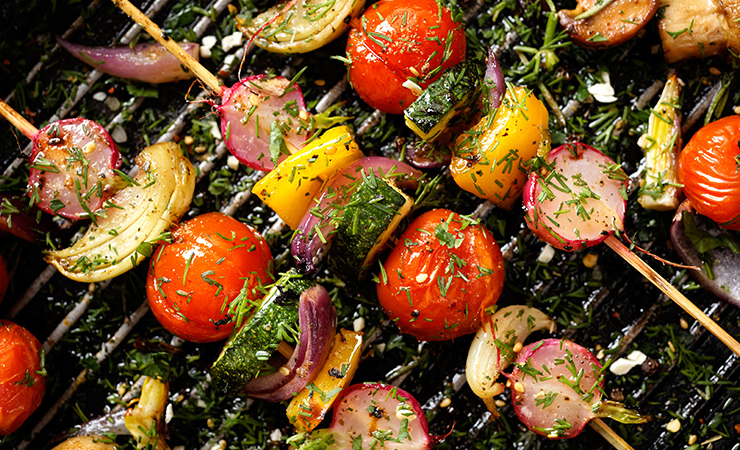With summer warming up, spending more time outdoors is on everyone’s mind. For many, barbecuing often goes hand-in-hand with outdoor summer activities. After the announcement from the International Agency for Research on Cancer (IARC) this past fall, which classified processed meat as a definite cause of cancer and red meat as a probable cause, healthy barbecuing strategies are naturally up for discussion.
The IARC’s classification is based on how likely something is to cause cancer—not how potent it is or how many cases of cancer it causes. To illustrate this, processed meat is in the same category as smoking, since the evidence is equally strong that they both cause cancer. However, the risk from smoking is much greater, in that far more cases of cancer are actually caused by smoking.
Over the years, evidence has been growing that people who eat more red and processed meat are more likely to develop bowel cancer. Red meat includes beef, lamb, and pork. Processed meat is meat that has been preserved: bacon, hot dogs, lunch meat, sausage, etc. But how exactly do these meats increase cancer risk, and how great is the risk?
In the digestive tract, a component of the hemoglobin found in red meat known as heme is metabolized to N-nitroso compounds (NOCs). There, NOCs can damage cells, which results in increased cell replication in order to promote healing. If anything goes wrong during this extra cell replication, it can lead to cancer. Preservatives such as nitrites are added to processed meats, which form NOCs once ingested and metabolized in the body. Additionally, the preparation method of meat is important. High temperature cooking such as grilling and barbecuing can generate compounds that increase cancer risk, especially in red and processed meats.
Meat, however, is just one factor in bowel cancer risk, and the amount consumed affects risk. In the context of an overall healthy diet and lifestyle, having red or processed meat occasionally is generally not cause for concern. That being said, individuals need to recognize their risk by considering factors such as family history, smoking, alcohol consumption, physical activity, weight management, and other dietary habits. For instance, a diet rich in fruits and vegetables is found to be protective, as formation of NOCs in the body is inhibited by certain compounds found in fruits and vegetables.
Cutting down on meat, rather than eliminating it, makes sense for most people. For some, red meat is an important source of protein, iron, zinc, and vitamin B12. Therefore, when choosing what to barbecue this summer, focus on variation. Add more fresh vegetables to the menu, and choose fish and chicken more often. Wrapping food in tin foil will add protection and prevent charring while on the barbecue. Lastly, if you do choose red or processed meat occasionally, be sure to enjoy it and allow it to nourish your mental and emotional well-being.
Dr. Scarlett Cooper is a licensed naturopathic doctor practicing at Bodhi Tree Wellness Centre in Surrey. Dr. Cooper has a general family practice with particular interest in digestive and skin conditions, children’s health, stress and weight management. To learn more, please visit www.drscarlettcooper.com.

